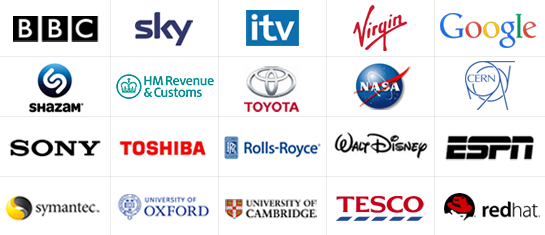 All orders Built, Shipped & Supported from within the European Union
All orders Built, Shipped & Supported from within the European Union

 All orders Built, Shipped & Supported from within the European Union
All orders Built, Shipped & Supported from within the European Union

The Waste Electrical or Electronic Equipment (WEEE) Directive requires countries to maximise separate collection and environmentally friendly processing of these items.
Unwanted electrical equipment is the UK's fastest growing type of waste.
Many electrical items can be repaired or recycled, saving natural resources and the environment. If you do not recycle electrical equipment will end up in landfill where hazardous substances will leak out and cause soil and water contamination – harming wildlife and also human health.
We're proud to support your local authority in providing local recycling facilities for electrical equipment.
To remind you that old electrical equipment can be recycled, it is now marked with the crossed-out wheeled bin symbol. Please do not throw any electrical equipment (including those marked with this symbol) in your bin.
In the UK, distributors including retailers must provide a system which allows all customers buying new electrical equipment the opportunity to recycle their old items free of charge. As a responsible retailer, we have met the requirements placed on us by financially supporting the national network of WEEE recycling centres established by local authorities. This is achieved through membership of the national Distributor Take-back scheme (DTS).
By taking your waste electrical products to one of the registered amenity sites, customers can be confident that their product will be subjected to a monitored and controlled recycling process, thereby preventing these products being sent to landfill.
Electrical goods are the fastest growing waste stream in the UK, growing by 5% each year.
Every year an estimated 2 million tonnes of WEEE items are discarded by householders and companies in the UK. (source: HSE)
Nearly 25% of waste electrical and electronic equipment (WEEE) that's taken to household waste recycling centres could be re-used. (source: WRAP)
In the lifetime of 1 UK citizen 3.3 tonnes of waste electronics is created! (weeeman.org)
Two million TV sets are discarded every year - most end up in landfill sites. (Recycle Now)
Over six million electrical items are thrown away every year in the UK. It is estimated that over half of them are still working or could easily be repaired. (ITDG, 2003)
15 million mobile phones are upgraded in the UK each year, laid from end-to-end they would reach from John O'Groats to Lands' End! (www.therecyclingfactory.com)
Customers will be able to take any old electrical equipment to participating civic amenity sites (often known as 'household waste recycling centres') run by their local councils, a list of participation collection points can be found on www.recycle-more.co.uk.
Please remember that this equipment will be further handled during the recycling process, so please be considerate when depositing your equipment. Funding collected through the Distributors Take Back Scheme has been distributed between all Local Authorities in the UK to ensure the provision of improved recycling facilities. Producers of these products will then ensure that deposited items are taken away and recycled.
You can locate your nearest participating collection site at www.recycle-more.co.uk.
(Please remember to have your postcode to hand).
By recycling your used batteries via dedicated battery collection points you're contributing to protecting our environment and the Earth's natural resources.
Batteries are made from important resources and chemicals, including lead, cadmium, zinc, lithium and mercury. If batteries are disposed of as normal municipal household waste, they'll be taken to a landfill site and those resources will be lost and will contribute to the pollution of the environment. Recycling is one way you can help the environment and you should dispose of used batteries separately from other waste, using the collection and recycling schemes available.
Your role in contributing to the recycling of waste batteries and in preventing pollution of the environment is essential. Each used battery that you place in a recycling box will be taken apart and many of the materials will be recovered and used to make new batteries or something else.
All batteries are labelled with the crossed-out wheeled bin below, to indicate that they shouldn't be disposed of as normal waste, but in specific recycling centres.
Batteries containing hazardous substances such as mercury (Hg), cadmium (Cd) or lead (Pb) are marked with their chemical symbol as well.

 Our Rigorous Testing
Our Rigorous TestingBefore leaving our UK workshop, all Broadberry server and storage solutions undergo a rigorous 48 hour testing procedure. This, along with the high-quality industry leading components ensures all of our server and storage solutions meet the strictest quality guidelines demanded from us.
 Un-Equaled Flexibility
Un-Equaled FlexibilityOur main objective is to offer great value, high-quality server and storage solutions, we understand that every company has different requirements and as such are able to offer un-equaled flexibility in designing custom server and storage solutions to meet our clients' needs.
We have established ourselves as one of the biggest storage providers in the UK, and since 1989 supplied our server and storage solutions to the world's biggest brands. Our customers include:
